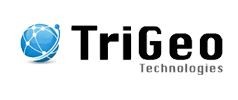226 IRIS SOLUTIONS Jobs

Python ML OPS - Manager
IRIS SOLUTIONS
posted 7hr ago
Job Role Insights
Fixed timing
Key skills for the job
Job Description
- Proficiency in Python : Strong experience in Python programming, with knowledge of ML libraries like TensorFlow, PyTorch, Scikit-learn, and other relevant tools.
- Machine Learning Knowledge : Solid understanding of machine learning algorithms, model evaluation, and model optimization techniques.
- DevOps and CI/CD : Experience working with DevOps practices, setting up CI/CD pipelines for ML models using tools like Jenkins, GitLab, or CircleCI.
- Containerization : Expertise in containerization technologies like Docker and Kubernetes for deploying machine learning models.
- Cloud Platforms : Experience with cloud computing platforms like AWS, GCP, or Azure for deploying scalable ML applications.
- Version Control : Familiarity with Git and Git-based workflows for version control and collaboration.
- Automation Tools : Experience with automation tools like Apache Airflow, Kubeflow, or similar for workflow management.
- Data Management : Understanding of data pipelines, data preprocessing, and data wrangling techniques.
Preferred Skills:
- Experience with distributed computing frameworks (e.g., Apache Spark, Dask) and parallel processing for scaling ML workflows.
- Familiarity with model interpretability and explainability techniques.
- Experience with model monitoring tools like Prometheus, Grafana, or ELK stack.
- Knowledge of MLOps platforms and tools such as MLflow, Kubeflow, or TensorFlow Extended (TFX).
Mandatory Competencies
Python - Python
DevOps - CI/CD
Cloud - AWS
Cloud - Azure
DevOps - Github
Beh - Communication
Beh - Communication and collaboration
Employment Type: Full Time, Permanent
Read full job descriptionPrepare for Operations roles with real interview advice
What people at IRIS SOLUTIONS are saying
What IRIS SOLUTIONS employees are saying about work life
based on 8 employees
Strict timing
Monday to Friday
No travel
Day Shift
Similar Jobs for you
Share an Interview




























